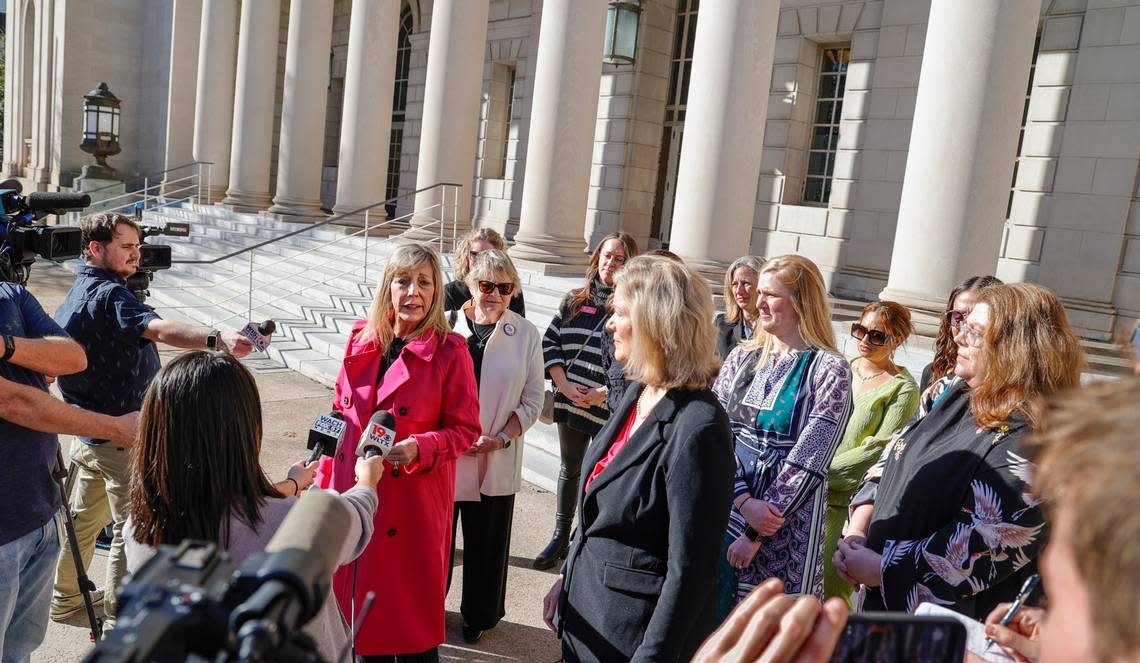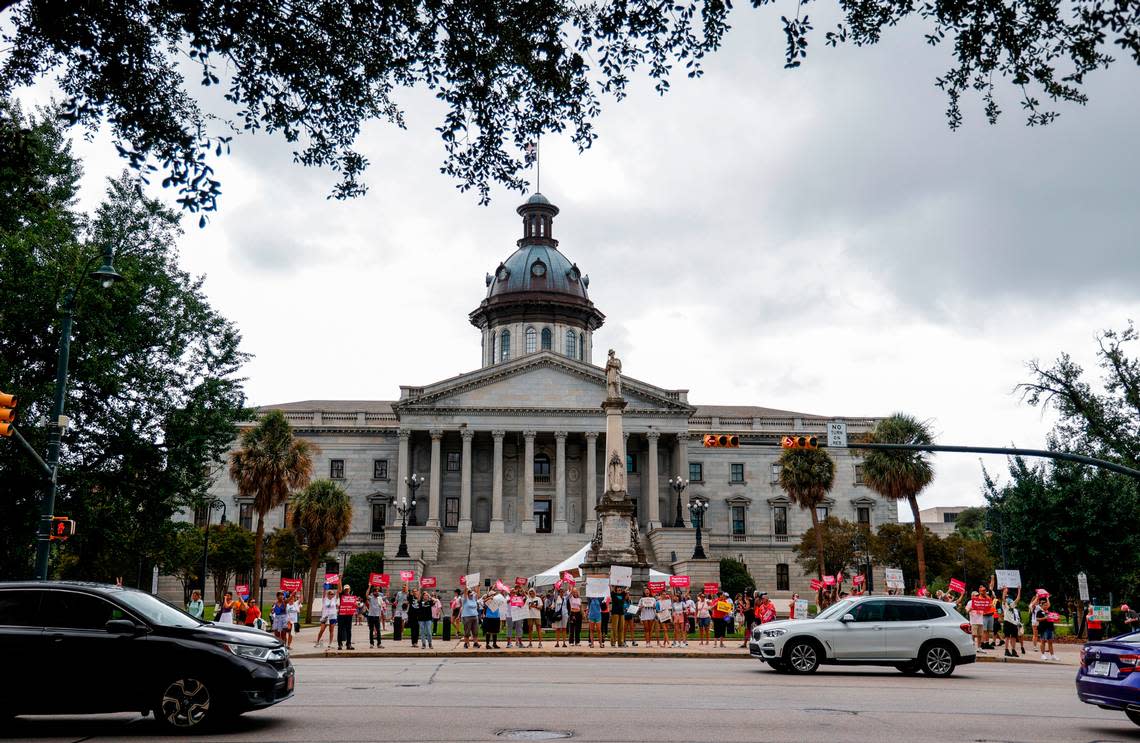Planned Parenthood South Atlantic backs SC as 1st Dem presidential primary vote
Planned Parenthood South Atlantic has joined the lobbying campaign to move South Carolina first on the Democratic presidential primary calendar, a decision that’ll be made in two weeks by the Democratic National Committee.
Jenny Black, president and CEO of Planned Parenthood South Atlantic, sent a letter Sunday, obtained by The State, urging the DNC to vote South Carolina first, given the state’s Black and female voter population and for the “future” of reproductive health care, she said.
Black, who oversees Planned Parenthood’s work in the Carolinas, Virginia and West Virginia, sent the letter on Jan. 22, the 50th anniversary of the U.S. Supreme Court’s Roe v. Wade decision.
“Selecting us as the first presidential primary state will allow the Democratic Party to put its values into action and demonstrate that they are the party of working class people, people of color, women, and other voices most marginalized,” Black wrote. “It would also allow the party to show strength in a region where our very democracy and freedoms are most at-risk.”
The DNC will make the decision over shaking up the voting calendar starting in 2024 in early February, weeks after its rules committee voted to replace Iowa as the first voting state and put South Carolina up front, followed by New Hampshire and Nevada on the same day, a week later.
President Joe Biden has endorsed the plan, writing in a letter sent last month to the DNC that caucuses are too “restrictive and anti-worker,” and Black voters, given their importance to the Democratic Party, should have their votes heard earlier in the process.
South Carolina is currently fourth on the primary calendar for both Democratic and Republican presidential primaries. But the state has gotten renewed attention after Biden, following losses in Iowa and New Hampshire, won the first-in-the-South primary in 2020 after an endorsement from key ally U.S. Rep. Jim Clyburn, South Carolina’s highest-ranking Democrat and its only Democratic congressman.
“It’s simple: if the Democratic Party says it values Black voters, then Black voters must have a prominent voice in the primaries,” Black wrote to the DNC. “If you are to practice what you preach, you must focus on states that represent the party’s members and elected officials — and give voters a better chance at building momentum behind a candidate that best represents them.”
In her letter to the DNC, chaired by South Carolinian Jaime Harrison, Black says putting South Carolina first also sends a signal that Democrats are united with the South and South Carolina, where “residents have had to fight every day to protect our reproductive rights.”
“I urge you to honor President Biden’s recommendation to make South Carolina the first primary state in the nation for the sake of our democracy, the strength of the party, and the future of our reproductive rights,” Black writes.

The South Carolina Supreme Court earlier this month struck down the state’s six-week abortion ban, passed in 2021, in a 3-2 ruling that said the ban violated the state’s constitutional right to privacy. Abortion now remains legal up to around 20 weeks of pregnancy.
Weeks before, the GOP-controlled state Legislature tried unsuccessfully to further restrict abortions, but House and Senate Republicans were unable to hash out a compromise ahead of the session deadline over just how restrictive the ban should be.
Now, House and Senate Republicans have vowed to respond to the state Supreme Court decision.
Some have filed familiar legislation to stop the practice, while leadership appears to have their sights set on the court makeup itself.
Lawmakers on Feb. 1 will vote on a successor for Supreme Court Justice Kaye Hearn, the only female justice on the state’s high court who wrote in the court’s six-week abortion ban majority opinion. Hearn is retiring because she is 72, the court’s official retirement age.
This week, two women vying for the seat withdrew their bids, leaving one man, Judge Gary Hill, as Hearn’s likely replacement.
It’ll be the first time in more than three decades the South Carolina Supreme Court will be all male.
“Gender is not a particular piece that I play in this scenario,” state Rep. Shannon Erickson, a Beaufort Republican who chairs the House Education and Public Works Committee, told reporters this past week when asked about the court’s lack of diversity. “I look at their record and their opinions from past service, and look for someone who meets my values and those of the citizens who sent me here.”

